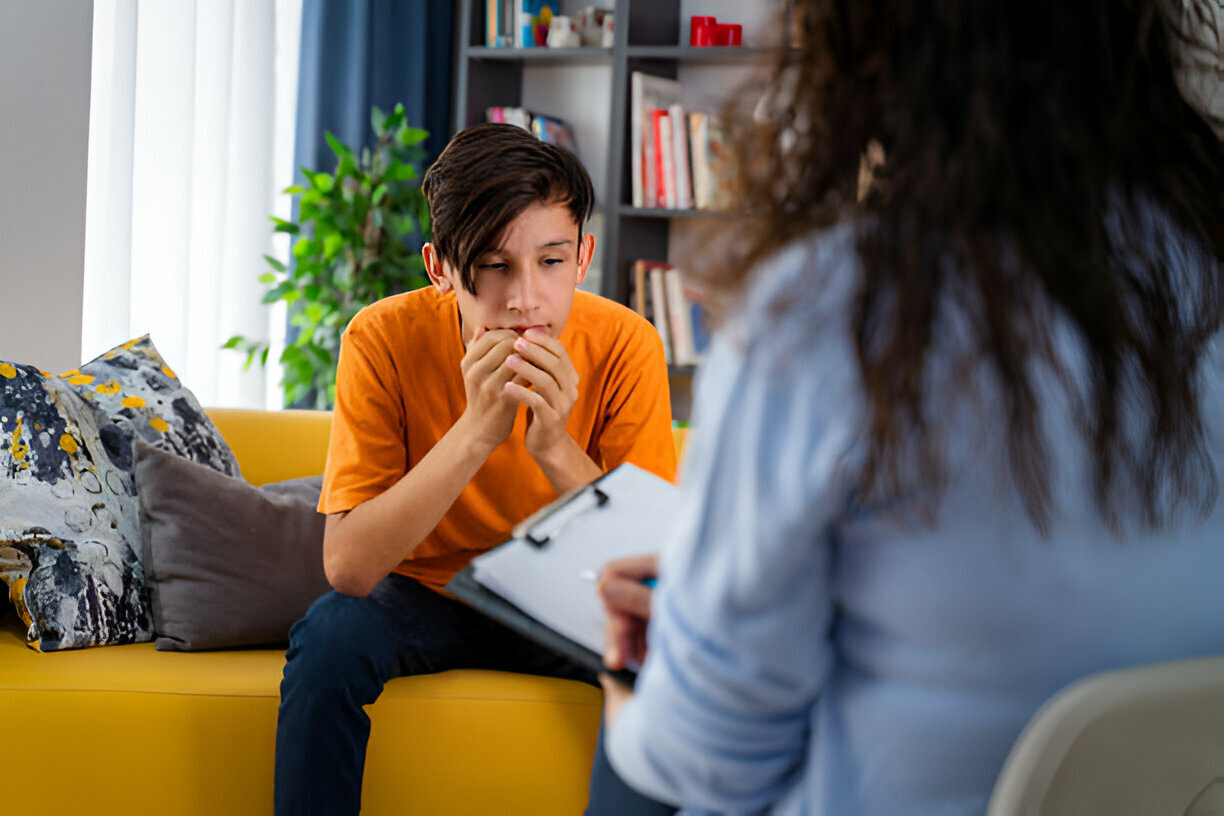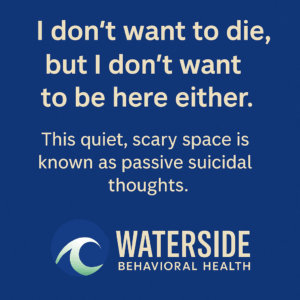You’re not actively planning to die. But you don’t know how much longer you can keep feeling like this either.
You might lie in bed thinking, “I don’t want to be here tomorrow.”
Not because you want to end it all—but because you’re exhausted in a way that sleep doesn’t fix.
This space—the space between suicidal thoughts and the will to live—is quiet and terrifying. It often goes unnoticed by others, and unspoken by those going through it. But if this is where you are, I want you to know:
You are not broken. You are not too far gone.
And you’re not alone.
There is a name for what you’re going through. There’s also help. And no, it doesn’t start with being locked up or medicated against your will. It starts with being heard.
1. What You’re Feeling Is Real—and Deserves Care
One of the hardest parts of this kind of pain is explaining it to anyone. You may not look like someone in crisis. You’re probably still functioning: working, texting back, smiling when expected. But inside, everything is gray.
That kind of pain has a name.
It’s called passive suicidal ideation—when you don’t want to actively end your life, but you also don’t want to be living it the way it is.
This isn’t attention-seeking. It’s not weakness. It’s not dramatic.
It’s a symptom of untreated or under-treated depression—and it deserves attention, not silence.
2. Depression Treatment Isn’t a Punishment—It’s a Plan
Let’s clear up the fear:
You do not have to be hospitalized just because you feel this way.
Depression treatment at Waterside Behavioral Health starts with understanding your experience—not reacting to it. We meet people every week who feel like you do: people who are struggling, scared of what they’re thinking, but also terrified of being judged.
Here’s what real help might look like:
- Talking openly with a clinician who isn’t trying to fix you—but to understand you
- Exploring therapy and support groups where your pain is met with care, not fear
- Considering options like CBT, DBT, or trauma-informed care to treat the root—not just the symptom
And yes, for some, medication helps. But we never push. We guide.
3. You Don’t Have to Be Ready—Just Willing
You may not feel ready to “get better.” You may not even know what better looks like. That’s okay.
We don’t ask you to be hopeful when you walk in the door.
We just ask that you show up anyway.
Treatment doesn’t start with energy. It starts with exhaustion. With saying, “I can’t do this on my own anymore.” And with someone answering, “You don’t have to.”
You don’t have to want a big future. Just a small change. Like not waking up with dread. Or having one quiet afternoon where your brain isn’t screaming at you.
4. Healing Isn’t Linear—and It Doesn’t Have to Be Fast
Sometimes, suicidal thoughts don’t vanish all at once. That’s not failure. It’s reality.
Good depression treatment won’t shame you for that. It will walk with you through the mess:
- When you feel okay and then suddenly don’t
- When you want to give up but come anyway
- When you’re not sure if the therapy is working yet—but something tells you to keep going
That’s how healing actually looks: lopsided, slow, and worth it.
5. Your Life Doesn’t Have to Be “Better”—It Just Has to Be More Livable
You don’t need a perfect life to want to stay.
You don’t need every problem solved before you get out of bed.
You just need enough relief to believe it’s worth trying.
At Waterside, our approach to depression treatment in Plymouth County is about making life more livable. Less overwhelming. Less hopeless. And more grounded in real human connection.
One good hour can turn into one good day. That’s how it starts.
Real Stories, Real Turns Toward Hope
Maya came to us after weeks of thinking about disappearing. She had a job. Friends. A life that “looked fine.” But inside, she felt hollow.
She told us:
“I don’t want to die. I just don’t want to keep doing this.”
We didn’t panic. We listened. We helped her build a plan that included therapy twice a week, connection to a peer group, and eventually, a trauma-informed therapist who helped her unravel the root of her fatigue.
Maya still has hard days. But she says the fog has lifted.
“Now I have people. I have language. I have breath.”
You deserve that too.
FAQs About Depression Treatment (When You’re Not Actively Suicidal)
Do I have to go to the hospital if I admit I have suicidal thoughts?
No. Passive suicidal thoughts are common in depression. Unless you’re at immediate risk, outpatient treatment is often the best and safest place to start.
Will I be forced to take medication?
Never. We offer medication as an option—but you’re always in control. Many clients choose therapy-only paths, and we respect that.
What if I don’t know how to explain what I’m feeling?
That’s okay. We’re trained to help you find words—or to sit with you while you have none. You don’t need a script. You just need to reach out.
How do I know if it’s time to get help?
If you’ve thought “I don’t want to die, but I don’t want to be here either,”—that’s enough. That’s the sign. You don’t need things to get worse before you get care.
You’re Still Here. That Matters.
Call 774-619-7750 or visit Contact Us to learn how Waterside Behavioral Health supports people like you—who are tired, scared, or stuck, but still holding on.
Let us hold some of that weight with you. You don’t have to do this alone.





